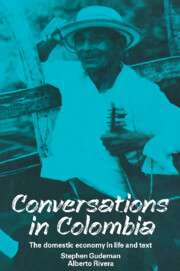5 - THE ADVANCE AND THE INCREASE
Published online by Cambridge University Press: 03 October 2009
Summary
As our conversations shifted endlessly between car and field, ways of talking about time increasingly captured our attention. Voices from the distant past continued to intrude upon our car conversations, but in the fields and houses the people talked mostly about the daily round of meals and the weekly market. Our attention was also drawn to the way the rural folk placed the base within a time framework. They spoke of “replacing” the base and “returning to” agriculture, which seemed to imply a repetitive, cyclical notion of time. But they also explained how a flow of goods – after being “gathered” from the land – was “used up” in the house in order to “maintain” it, and this seemed to imply an unfolding view of time. The more we conversed, however, the more another difference emerged between car and field. Both of us were accustomed to hearing about the “progress” of technology, the “rise” of productivity, and the “growth” of the national product. This was not part of the local conversation, in which the acquisition of new seeds and fertilizer meant replacing failing ones and forestalling scarcity. The rural folk had given us narratives about the origin and long-term development of the base as well as personal accounts of success and failure in the short term, so “economic change” was part of their lexicon. But their discussion revolved about changing the size of the house through engaging sharecroppers or spawning a new one, not changing its form.
- Type
- Chapter
- Information
- Conversations in ColombiaThe Domestic Economy in Life and Text, pp. 84 - 97Publisher: Cambridge University PressPrint publication year: 1990



